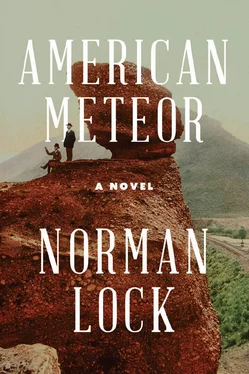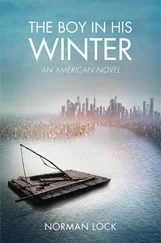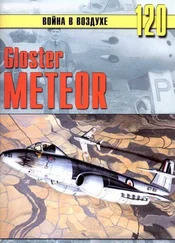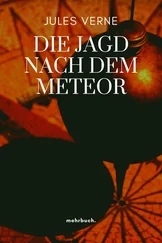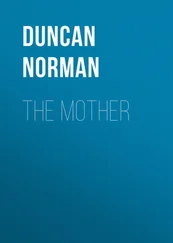“I was the bugle boy you recommended for Mr. Lincoln’s funeral train. I played taps on the trip to Springfield. I’ve always been grateful for the notice you paid me.”
I didn’t mention the first time I saw him, by Sheepshead Bay. He might not have cared to be reminded of his vanished virility.
“There were so many young men. Though it seems to me I do remember your face — because of the eye patch, though I don’t recall the circumstances. What brings you east, friend? If I were lucky enough to be a man at large in the West, nothing short of dynamite could relocate me.”
I told him that Custer had taken me on as his photographer and that we’d come east to see the exposition. (I didn’t mention the general’s disgrace.) Whitman said he hoped he’d feel up to scratch enough to go. He was keen on Machinery Hall. He believed that machines would be the motive power to push the democracy forward into the twentieth century. He planned on going to Philadelphia with Eakins, if his strength didn’t desert him entirely. He wanted to ride the Camden ferry once again. Looking at his hand, wondering, perhaps, what had become of its power to snatch from the air his mind’s effusions, he recited, “What exhilaration, change, people, business by day. What soothing, silent, wondrous hours, at night, crossing on the boat, most all to myself — pacing the deck, alone, forward or aft. What communion with the waters, the air. — the sky and stars, that speak no word.”
In my mind’s eye, I saw him on deck, wearing his suit of iron gray, loosely cut and old-fashioned. The Good Gray Poet, “taken by strangers for some great mechanic, or stevedore, or seaman, or grand labourer”—sadly, now, no more.
“Custer is a magnificent specimen of the American man,” Whitman said later while we were drinking tea in the sunny kitchen. “You won’t catch the general sipping horse piss like this.”
“The general’s teetotal,” I said.
“Is he?” This news seemed shocking to Whitman, as if I’d told him Custer liked to dress up in Libbie’s undergarments. “I would never have thought it. Grant’s a man’s man, though! Nothing but whiskey and cigars for him!”
Both manly vices would prove fatal when Death came for him — destitute and forgotten — in 1885.
“Custer will deal with the Indians,” said Whitman, who must have forgotten his verses in praise of them.
“Yes,” I said, to be agreeable. And I will deal with Custer, I thought.
“What do you think of love, Stephen?”
“Pardon me?” I said, much surprised by this question, which was apropos of nothing.
“Lately, I’ve been thinking a good deal about love,” he said with a distracted air that made him look like a moon calf. “I thought I understood it, but now, now I’m not so sure.”
Strange, isn’t it, Jay, that the nearest I had gotten so far to an understanding of love was with an Indian girl who didn’t speak English?
“It’s a mysterious force to make men and women behave in the most extraordinary way.”
Yes, I said to myself, not feeling qualified to interrogate the matter with him.
“You know, when I was a boy of five, General Lafayette picked me up from a crowded sidewalk and carried me down the street during his visit to New York. I have always believed that happenstance conjunction determined my destiny.”
He lapsed into a silence fretted by wonder and regret while he played absently with his teaspoon.
“It cannot stand!” he said with sudden vigor. “My dismissal! To have been let go with such contempt; to be dismissed for having written a book ‘full of indecent passages.’ He called me ‘a very bad man,’ you know, a ‘free lover.’ No, I can’t allow Harlan’s calumny to go unanswered.”
I knew that Harlan, secretary of the interior during Johnson’s presidency, had sacked Whitman because of Leaves of Grass , which he judged obscene. That was nearly eleven years ago, and it had returned, the cheap denigration of his life’s work and life, both: a grievance the old man gnawed, like a marrow bone, in his winter, his sad decrepitude. If he’d ever forgotten the affront. I could not pity him: I was no one to pity a great man, however reduced by age and sickness. I was sorry. We can feel sorry for people fallen on hard times without demeaning them by pity. Though I could have cried to see Whitman’s rheumy eyes, his gnarled, arthritic hands, the remains of a coddled egg left from breakfast on his shirt. His great head waggled a little, the way an old man’s will.
I stood and shook his hand. From his chair, he threw an arm around my neck and drew my face down to his and kissed me. Our beards entangled as briefly as our two lives had done — in Brooklyn, Washington, and now in Camden — and then they disentangled, one from the other, although he’d be often in my thoughts.
“Thank you for your visit, young man. Will you be stopping at the exposition?”
“Briefly, Mr. Whitman.”
“Walt — call me Walt, as you would a comrade.”
“Walt.”
He smiled, and I watched his face undergo a metamorphosis that would have entranced Ovid: It passed from the unalloyed joy of an elk at the summit of its range to the anguish of a deer, an arrow through its lungs and heart.
“Perhaps, I’ll be able to visit it next month. Sadly, the organizers did not invite me to read my poems.”
He would visit the Centennial Exposition and slide his fifty cents through the ticket window, like any ordinary citizen of the democracy he cherished and sometimes wrongheadedly defended. Still, you couldn’t help but love him — at least I couldn’t, who had heard him bellow his love while the waves crumbled on Brooklyn’s pleasant shore when I was nearly twelve.
I left him sitting in the kitchen, upright in his chair, his saucer flooded with tea, without a backward glance— knowing that the door to my childhood, which I believed long ago dead and buried, had finally closed with the shutting of the Whitmans’ front door on Stevens Street.
That evening, I crossed the Delaware to Philadelphia and joined Custer at the exposition. Two months later, a telegram from Salt Lake City would arrive there, electrifying visitors with the news that Custer and all his men (save one) had fallen at the Little Bighorn. Shortly afterward, Whitman would write “A Death-Sonnet for Custer” and publish it in the New York Daily Tribune .
I.
From far Montana’s cañons,
Lands of the wild ravine, the dusky Sioux, the lonesome stretch, the silence,
Haply, to-day, a mournful wail — haply, a trumpet note for heroes.
II.
The battle-bulletin,
The Indian ambuscade — the slaughter and environment
The cavalry companies fighting to the last — in sternest, coolest, heroism.
The fall of Custer, and all his officers and men.
III.
Continues yet the old, old legend of our race!
The loftiest of life upheld by death!
The ancient banner perfectly maintained!
(O lesson opportune — O how I welcome thee!)
As, sitting in dark days,
Lone, sulky, through the time’s thick murk looking in vain for light, for hope,
From unsuspected parts, a fierce and momentary proof,
(The sun there at the center, though concealed,
Electric life forever at the center,)
Breaks forth, a lightning flash.
IV.
Thou of sunny, flowing hair, in battle,
I erewhile saw, with erect head, pressing ever in front, bearing a bright sword in thy hand,
Now ending well the splendid fever of thy deeds,
(I bring no dirge for it or thee — I bring a glad, triumphal sonnet;)
There in the far northwest, in struggle, charge, and saber-smite,
Читать дальше
